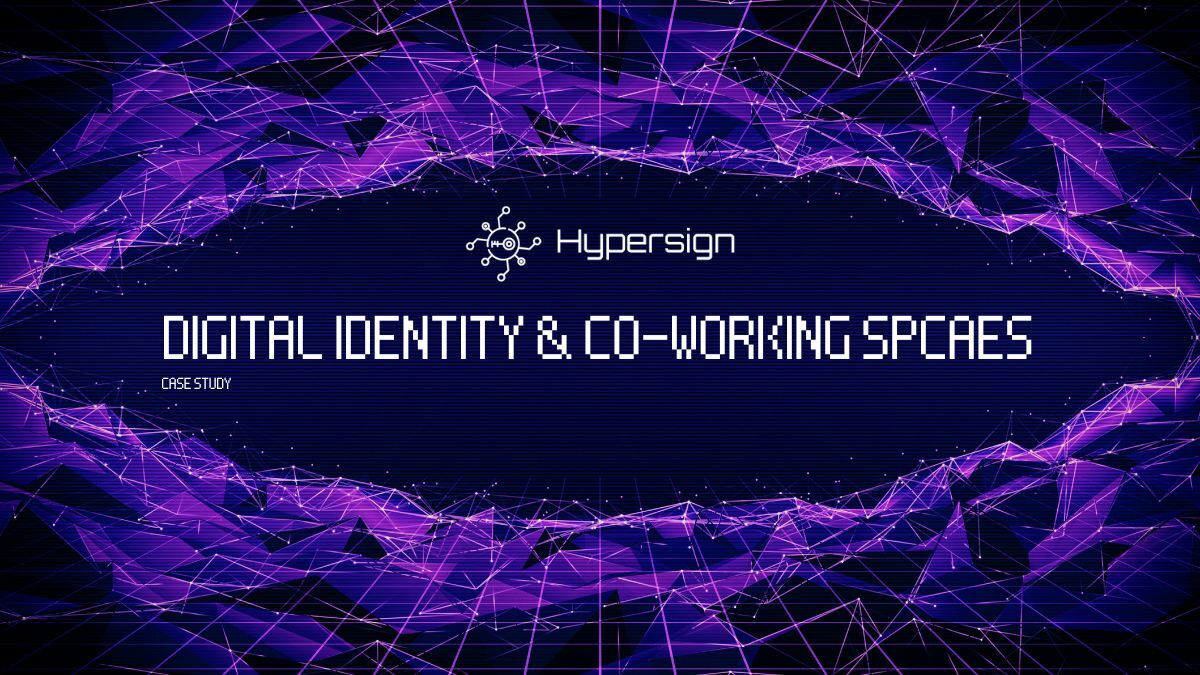The global Co-Working Space Market size was valued at USD 6.89 billion in 2021 and is predicted to reach USD 24 billion by 2030 with a CAGR of 14.9% from 2022 to 2030; according to a few other reports, this number is even higher. The India Co-working Office Spaces market was USD 1.78 billion in 2022 and is anticipated to register a CAGR of over 7% during 2022-2028.
In a world where digital transformation is reshaping how we conduct business, co-working spaces are lacking in taking advantage of technology for customer interaction & onboarding at various touchpoints; the concept of attaching identity to access is becoming increasingly essential. As physical touchpoints reduce, it is vital to have systems that ensure Identity verification and access management work seamlessly for the customer but be tamper-proof from a business standpoint.
The Short-Term Rental Industry
Industries like co-working spaces, bike/car rentals, and hotels are not immune to Identity theft and tampering with official Identity documents by the customer.
For instance, our on-ground research into a popular open office space in Bengaluru, India, revealed significant security risks associated with their day pass booking process. The existing process involved several steps, including purchasing a day pass, filling out a form, uploading a government-issued identity card, making a payment, and checking in.
For instance, our on-ground research into a popular open office space in Bengaluru, India, revealed significant security risks associated with their day pass booking process. The existing process involved several steps, including purchasing a day pass, filling out a form, uploading a government-issued identity card, making a payment, and checking in.
However, several critical flaws were identified:
- Customers could upload random documents instead of valid identity documents during the booking process.
- The manual check-in process was not only time-consuming but also left room for manipulation.
- Perhaps most alarmingly, there was no ID verification during the booking or check-in process, resulting in a glaring security risk.
Even if you uploaded a picture of your dog instead of an Identity document, there was no check on it while you checked in to the co-woking property. Think about the security risk this approach poses!
Technical Solutions with Self-Sovereign Identity
Self-sovereign identity solutions like those provided by Hypersign offer a comprehensive technical framework to address these issues. By attaching identity to the day pass and short-term rental bookings, Hypersign streamlines and secures these transactions.
Here's how the technical integration of Hypersign's platform offers a holistic solution for issuing a day pass for a co-working space:
User Experience: Users visit the booking site, where a user-friendly interface guides them through the booking process. They undergo rigorous ID verification, which includes scans of official documents and facial recognition. This not only ensures the authenticity of the users but also simplifies the form-filling process by auto-filling personal data.
Security: The integration enhances security at multiple levels. Users receive a day pass in the form of a single QR code, which contains crucial information, such as the payment receipt, verified ID documents, and the day pass itself. This consolidated data ensures that only authorized visitors with verified IDs can access the premises.
Speed: Automation optimizes efficiency and reduces the risk of security breaches. By implementing a one-step self-check-in process at the venue, users can collect all three essential documents (payment receipt, ID document, and day pass) with a single QR. This ensures swift and secure entry by scanning the QR at the reception to check-in.
Leveraging Self-Sovereign Identity for Booking & Onboarding
The core strength of self-sovereign identity, as demonstrated by Hypersign, lies in its ability to attach identity to event tickets, day pass, rental receipt, and various other applications securely. This technology can eliminate the possibility of ticket resale, tampering, duplication, and sharing, ensuring that event organizers and attendees have confidence in the system's integrity.
Decentralized identity operates through blockchain technology, establishing a decentralized and immutable ledger of identities and their associated attributes. Each individual is assigned a unique Decentralized Identifier (DID), linked cryptographically to their public key and verified by the blockchain network. This cryptographic approach ensures the protection and immutability of identities and data.
Hypersign's Role in Decentralized Identity
Hypersign is at the forefront of decentralized identity solutions, offering a pioneering platform that gives users full control over their digital identities and personal data. Hypersign's permissionless blockchain network is built on Self-Sovereign Identity (SSI) principles and ensures secure and scalable verifiable data registry (VDR) implementation.
Hypersign Entity Studio is the technical backbone of their platform, providing a full-stack identity infrastructure for the rapid development of digital identity products. This system meets World Wide Web Consortium (W3C) DID and Verifiable Credential specifications. It employs a low-code approach and offers APIs and SDKs to empower developers to deploy applications swiftly.
In a rapidly evolving digital landscape, attaching identity to day passes, event tickets, and short-term rental bookings is not only a matter of convenience but also a crucial step toward enhancing security and fraud prevention. With self-sovereign identity solutions like Hypersign, users gain control over their data and identities, promising a safer and more user-centric digital world.
As decentralized identity advances, standards, scalability, and user adoption remain key challenges. However, collaborative efforts and the development of interoperable standards will be pivotal in unlocking the full potential of this innovative solution.
About Hypersign
Hypersign is an innovative, permissionless blockchain network that manages digital identity and access rights. Rooted in the principles of Self-Sovereign Identity (SSI), Hypersign empowers individuals to take control of their data and access on the internet. It provides a scalable, interoperable, and secure verifiable data registry (VDR) that enables various use cases based on SSI. Built using the Cosmos-SDK, the Hypersign Identity Network is recognized by W3C (World Wide Web Consortium), promoting a seamless and secure identity management experience on the Internet.
Get in touch with us today to understand how you could implement DID in your business meet.hypersign@gmail.com



















